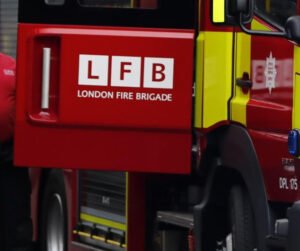 The London Fire Brigade’s latest figures show that 1,006 buildings in the capital have currently suspended the ‘stay put’ building design strategy, and replaced it with the interim simultaneous evacuation strategy.
The London Fire Brigade’s latest figures show that 1,006 buildings in the capital have currently suspended the ‘stay put’ building design strategy, and replaced it with the interim simultaneous evacuation strategy.
This could mean that buildings have a temporary waking watch or a common alarm in place, with consideration also being given to evacuation management.
Of the buildings currently subject to a simultaneous evacuation strategy, 718 are due to issues with cladding – both ACM and other types of cladding – and the remainder have other fire safety defects.
“Waking watches should be temporary”
Waking watches are put in place by those responsible for fire safety in buildings. This is the ‘responsible person’, who will use a competent fire safety professional to advise on what interim measures are appropriate.
While the Brigade has a role in enforcing fire safety legislation, it does not make a decision on which interim measures are put in place in a building. The national guidance is that waking watches should be a temporary measure and be replaced with a common alarm system as soon as possible, pending remediation.
 London Fire Commissioner Andy Roe said: “We are extremely concerned that more than four years after the Grenfell Tower tragedy, the number of buildings being identified with fire safety issues is increasing.
London Fire Commissioner Andy Roe said: “We are extremely concerned that more than four years after the Grenfell Tower tragedy, the number of buildings being identified with fire safety issues is increasing.
“The scale of issues being uncovered in buildings across the UK is worrying and there are much wider issues than just dangerous cladding.
“There is a far higher number of high-risk buildings in London than anywhere else in the country and it’s clear that there has not yet been a complete culture change when it comes to fire safety in residential buildings.
Vital work needs to begin
“We’re calling on all building owners and managers to take urgent action to remediate their buildings if there are serious fire safety failings. It is completely unacceptable for residents to be burdened with the knowledge, and the fear that can bring, that their building may not be safe in the event of a fire.”
Commissioner Roe has also highlighted the pressure being put on Fire Safety Inspection Officers, who have to inspect or re-inspect buildings that have changed their evacuation strategy. Front line fire crews are also carrying out regular familiarisation visits at these high-risk buildings.
He said that while it is a draw on Brigade resources, it is vital work which has to be maintained into the future until all these buildings have been remediated.
This article was originally published on IFSEC Global.
In this episode, we drop in to a recent FIREX webinar, which looked at the legislative and systemic changes required in fire safety, and the wider building sector, to ensure buildings are made safer for occupants….


 London Fire Commissioner Andy Roe said: “We are extremely concerned that more than four years after the
London Fire Commissioner Andy Roe said: “We are extremely concerned that more than four years after the 